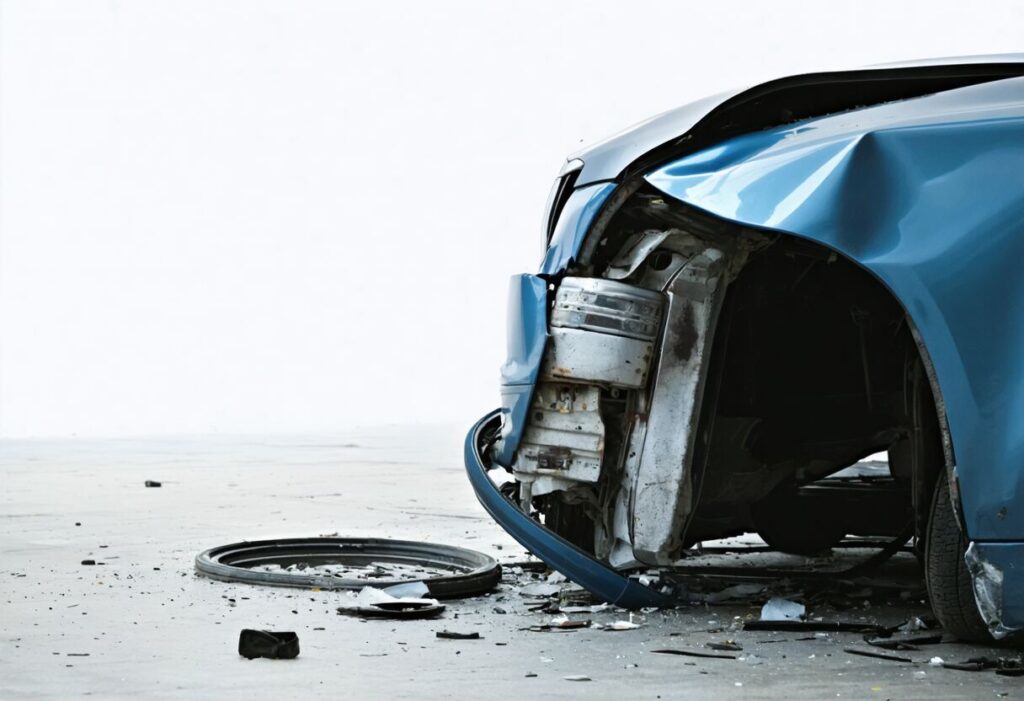TL;DR
If the at-fault driver lacks insurance, you can rely on your own insurance policies, seek compensation through your state’s uninsured motorist laws, or consider legal action against the driver. It’s essential to understand your coverage options and the legal avenues available to ensure you receive the compensation you deserve.
Key Highlights
- Uninsured Motorist Coverage: Utilize this part of your insurance to cover damages when the other driver is uninsured.
- Personal Injury Protection (PIP): Access funds from your policy for medical expenses and lost wages regardless of fault.
- Health Insurance: Use it to cover medical costs not covered by your auto insurance.
- Legal Action: Pursue a lawsuit against the uninsured driver to seek compensation.
- Government Assistance: Explore state programs that may offer compensation in certain situations.
- Preventative Measures: Ensure you have adequate coverage and understand your policy details to protect yourself in such scenarios.

Every year, thousands of drivers find themselves in accidents where the person at fault lacks the necessary insurance to cover the resulting damages. This situation can leave victims feeling vulnerable and uncertain about their financial and legal options. The absence of the at-fault driver’s insurance complicates the claims process and may extend the time it takes to receive compensation.
In many states, including Georgia, driving without insurance is illegal and can result in significant penalties for the offending driver. However, despite these laws, uninsured motorist accidents still occur, leaving victims to navigate the aftermath without the assurance of coverage from the responsible party. Understanding state-specific regulations and the protections available can make a substantial difference in how these cases are handled.
Addressing the complexities that arise when dealing with an uninsured at-fault driver requires a strategic approach. By leveraging available insurance policies, exploring legal options, and being proactive in your coverage choices, you can effectively manage the challenges posed by such incidents. This article provides a comprehensive overview of the steps you can take to safeguard your interests when faced with an uninsured driver responsible for an accident.
Understanding Uninsured Motorist Incidents
Accidents involving uninsured drivers present unique challenges. Without the financial backing of the at-fault party’s insurance, victims must rely on their own resources and coverage options to recover losses. This situation often leads to increased out-of-pocket expenses for medical bills, property damage, and other related costs.
The presence of an uninsured driver complicates the traditional claims process. Typically, accident victims would file a claim with the at-fault driver’s insurance company to receive compensation. However, when the driver lacks insurance, this pathway is unavailable, necessitating alternative strategies to secure necessary funds.
Additionally, the emotional and psychological impact of being involved in an accident with an uninsured driver can be significant. Victims may experience stress and anxiety related to the uncertainty of their financial recovery and the legal process involved. Recognizing these challenges is essential in addressing the comprehensive needs of those affected by such incidents.
Your Insurance Options
When dealing with an uninsured at-fault driver, your own insurance policies become crucial in covering the damages incurred. Two primary types of coverage can provide financial assistance in these scenarios: Uninsured Motorist (UM) coverage and Personal Injury Protection (PIP).
Uninsured Motorist (UM) Coverage
Uninsured Motorist coverage is designed to protect you in the event that you’re involved in an accident with a driver who lacks adequate insurance. This coverage can help pay for medical expenses, lost wages, and other related costs that result from the accident. It’s an optional coverage in many insurance policies, but it’s highly recommended given the prevalence of uninsured drivers on the road.
Personal Injury Protection (PIP)
Personal Injury Protection is another critical component of your auto insurance that can provide additional financial support. PIP covers a range of expenses, including medical bills, rehabilitation costs, and even lost income due to injury, regardless of who was at fault in the accident. This makes it a valuable resource for ensuring that you’re not left financially strained after an accident with an uninsured driver.
By understanding and utilizing these coverage options, you can mitigate the financial impact of an accident where the at-fault driver is uninsured. It’s important to review your policy details and consult with your insurance provider to ensure you have adequate protection in place.
Legal Steps to Take
Facing an accident with an uninsured driver involves several legal considerations. While the absence of insurance on the part of the at-fault driver complicates matters, there are steps you can take to seek compensation and protect your rights.
Filing a Lawsuit
One of the primary legal avenues available is filing a lawsuit against the uninsured driver. This legal action allows you to pursue compensation for damages such as medical expenses, property damage, and other related costs. However, the success of a lawsuit can depend on the at-fault driver’s ability to pay out of pocket, which may be limited if they lack sufficient assets.
Reporting to Authorities
Reporting the incident to local law enforcement is essential, especially if the uninsured driver fled the scene or violated traffic laws. A police report can serve as crucial evidence in both insurance claims and legal proceedings, providing an official record of the accident and the circumstances surrounding it.
Consulting an Attorney
Engaging with a legal professional who specializes in auto accidents can provide valuable guidance. An atlanta personal injury attorney can help navigate the complexities of the legal system, advise on the best course of action, and represent your interests in negotiations or court proceedings. This support can enhance your chances of obtaining fair compensation for your losses.
Taking these legal steps ensures that you are actively pursuing your rights and seeking the compensation needed to recover from the accident. It’s important to act promptly and keep detailed records of all related documentation to strengthen your case.
Navigating Insurance Claims
Handling insurance claims after an accident with an uninsured driver requires careful attention to detail and an understanding of your policy provisions. Effective navigation of this process can significantly influence the outcome of your compensation efforts.
Documenting the Accident
Comprehensive documentation is crucial in supporting your insurance claim. This includes taking photographs of the accident scene, collecting contact information from witnesses, and obtaining a copy of the police report. Detailed records of your injuries and related expenses also strengthen your claim by providing clear evidence of the damages incurred.
Communicating with Your Insurance Company
Open and honest communication with your insurance provider is essential. Inform them promptly about the accident and provide all necessary documentation to facilitate the claims process. Understanding the specifics of your coverage, including any limits or exclusions, can help set realistic expectations about the compensation you may receive.
Negotiating Settlements
In some cases, your insurance company may offer a settlement to cover your losses. Negotiating effectively involves understanding the full extent of your damages and advocating for a fair compensation amount. If necessary, you may seek the assistance of an attorney to ensure that the settlement adequately addresses your needs.
Properly navigating the insurance claims process requires a proactive approach and a thorough understanding of your policy’s terms. By being meticulous and informed, you can enhance your chances of a favorable outcome.
Exploring State Resources
When dealing with an uninsured at-fault driver, state resources can provide additional avenues for compensation and support. Various states have specific programs and funds designed to assist victims in such situations.
State Compensation Funds
Some states maintain compensation funds that provide financial assistance to victims injured by uninsured drivers. These funds can cover medical expenses, lost wages, and other related costs when the at-fault party is unable to provide adequate compensation. Eligibility criteria and the application process vary by state, so it’s important to research the options available in your jurisdiction.
Legal Aid Services
State-supported legal aid services offer free or low-cost legal representation to individuals who may not have the resources to hire a private attorney. These services can assist you in filing lawsuits, negotiating settlements, and understanding your legal rights and options in the aftermath of an accident with an uninsured driver.
Driver Rehabilitation Programs
In some areas, driver rehabilitation programs are available to help improve road safety and reduce the likelihood of future accidents. While not directly compensatory, participation in these programs can enhance your driving skills and provide education on avoiding and handling accidents, contributing to long-term safety and security.
Leveraging state resources can provide essential support and additional compensation opportunities, supplementing your own insurance and legal efforts in recovering from an accident with an uninsured driver.
Preventative Measures and Future Protection
While accidents with uninsured drivers cannot always be predicted, taking proactive steps can help minimize the financial and legal impact should such an event occur. Ensuring you have adequate coverage and understanding your insurance options are key components of effective preventative measures.
Reviewing and Updating Insurance Policies
Regularly reviewing your auto insurance policies ensures that your coverage remains adequate and aligns with your current needs. Consider increasing your Uninsured Motorist and Personal Injury Protection coverage limits to provide greater financial protection in the event of an accident with an uninsured driver.
Educating Yourself on Coverage Options
Understanding the various types of insurance coverage available enables you to make informed decisions about the protection you need. Researching different policies and speaking with insurance agents can help you identify the most comprehensive and cost-effective options tailored to your circumstances.
Safe Driving Practices
Adhering to safe driving practices reduces the likelihood of being involved in accidents. Following traffic laws, avoiding distractions, and maintaining your vehicle in good condition contribute to overall road safety and minimize the risk of accidents with uninsured drivers.
Implementing these preventative measures not only enhances your safety but also fortifies your financial and legal position should you encounter an accident with an uninsured driver. Being proactive ensures you are better prepared to handle such incidents effectively.
Seeking Compensation Through Legal Channels
When insurance options are insufficient or unavailable, pursuing compensation through legal channels becomes necessary. This approach involves various strategies to ensure that your losses are adequately addressed despite the absence of the at-fault driver’s insurance.
Understanding Your Legal Rights
Knowing your legal rights is fundamental in seeking compensation from an uninsured driver. This includes understanding the liabilities and responsibilities of drivers under state laws and recognizing the avenues available for pursuing damages through the legal system.
Calculating Damages
Accurately calculating the damages you’ve incurred is essential in legal proceedings. This includes direct expenses like medical bills and vehicle repairs, as well as indirect costs such as loss of income and pain and suffering. A thorough understanding of your total damages helps in presenting a compelling case for compensation.
Pursuing a Lawsuit
Filing a lawsuit against the uninsured driver can be a viable option for obtaining compensation. This process typically involves filing a complaint, engaging in discovery, and possibly going to trial. While litigation can be time-consuming and requires legal expertise, it offers a potential pathway to recover damages when other options are exhausted.
Settling Out of Court
In some instances, reaching a settlement out of court can expedite the compensation process. Negotiating a settlement with the uninsured driver or their representatives allows for a mutually agreeable resolution without the need for prolonged legal proceedings. However, it’s important to ensure that any settlement adequately covers your damages and is formally documented.
Engaging in legal channels requires a strategic approach and, often, professional legal assistance. By understanding and utilizing these methods, you can effectively pursue the compensation needed to recover from an accident involving an uninsured driver.
Impact on Personal Finances
An accident with an uninsured driver can have significant repercussions on your personal finances. Without adequate compensation, victims may find themselves facing substantial out-of-pocket expenses that can strain their financial stability.
Medical Expenses
Uninsured driver accidents often result in considerable medical costs. Without the ability to recover expenses from the at-fault driver, individuals may need to rely on personal savings, health insurance, or their own auto insurance coverage to cover medical treatment and rehabilitation.
Property Damage
Damage to your vehicle or other property can be a major financial burden. Repair costs or the replacement of a totaled vehicle require substantial funds, which can be challenging to manage without the support of the at-fault driver’s insurance.
Lost Income
Injuries sustained in an accident can lead to missed work and lost income. Retrieving compensation through your own insurance policies or legal action is crucial to offsetting the financial impact of reduced earning capacity during the recovery period.
Increased Insurance Premiums
Filing claims, even under your own coverage, can result in increased insurance premiums. Balancing the immediate need for compensation with the long-term cost implications is essential in managing your financial health post-accident.
Understanding the potential financial impacts and proactively addressing them through available resources and strategies is key to maintaining stability after an accident with an uninsured driver.
Emotional and Psychological Considerations
Beyond the tangible financial and legal challenges, accidents involving uninsured drivers can take a toll on your emotional and psychological well-being. Coping with the aftermath requires attention to mental health alongside physical recovery.
Stress and Anxiety
The uncertainty surrounding compensation and the inability to recover damages from the at-fault driver can lead to significant stress and anxiety. Concerns about medical bills, property damage, and lost income can exacerbate emotional strain during an already difficult time.
Trauma and Recovery
Experiencing an accident can result in trauma that affects daily functioning and overall quality of life. Seeking support through counseling or therapy can aid in processing the emotional impact and facilitate a healthier recovery process.
Support Systems
Relying on support systems, such as family, friends, and support groups, provides essential emotional assistance. Sharing experiences and accessing resources can help alleviate feelings of isolation and empower you to navigate the challenges ahead.
Addressing emotional and psychological needs is a vital component of comprehensive recovery after an accident, ensuring that you are supported in all aspects of healing and rebuilding your life.
Conclusion
Facing an accident where the at-fault driver lacks insurance introduces a complex array of challenges, both financial and emotional. However, understanding your insurance options, such as Uninsured Motorist and Personal Injury Protection coverage, provides a foundational layer of protection against unforeseen expenses. Additionally, leveraging legal avenues, including filing lawsuits or negotiating settlements, offers avenues to seek compensation and hold the responsible party accountable.
Exploring state resources and compensation funds can further aid in recovering losses, especially when personal insurance avenues are exhausted. Proactive measures, such as regularly reviewing and updating your insurance policies and practicing safe driving, serve as preventative strategies to mitigate the impact of potential accidents.
Moreover, addressing the emotional and psychological aftermath through support systems and professional assistance is crucial in ensuring a holistic recovery. By taking informed and decisive actions, you empower yourself to navigate the complexities of accidents involving uninsured drivers effectively.
If you’ve been involved in an accident with an uninsured driver, don’t wait to explore your options. Contact us for a free consultation today and take the first step toward securing the compensation you deserve. Time is of the essence in legal matters, so act now to protect your rights and financial well-being.



